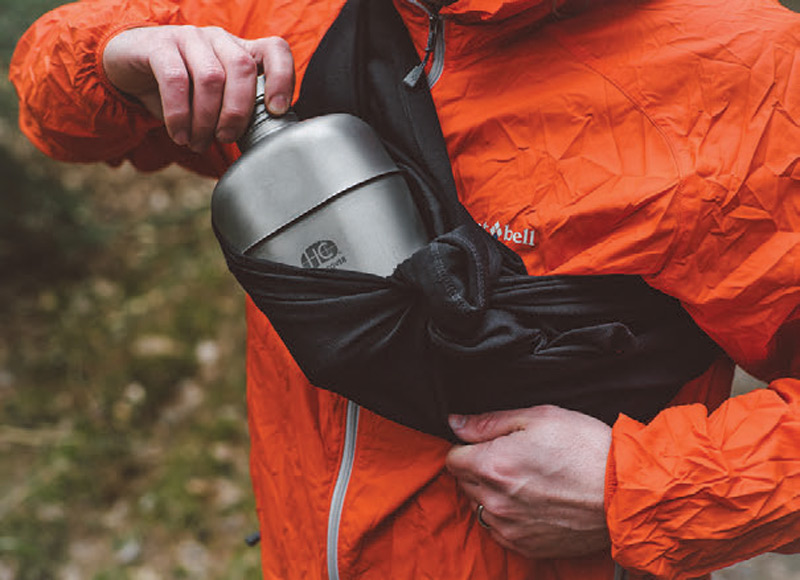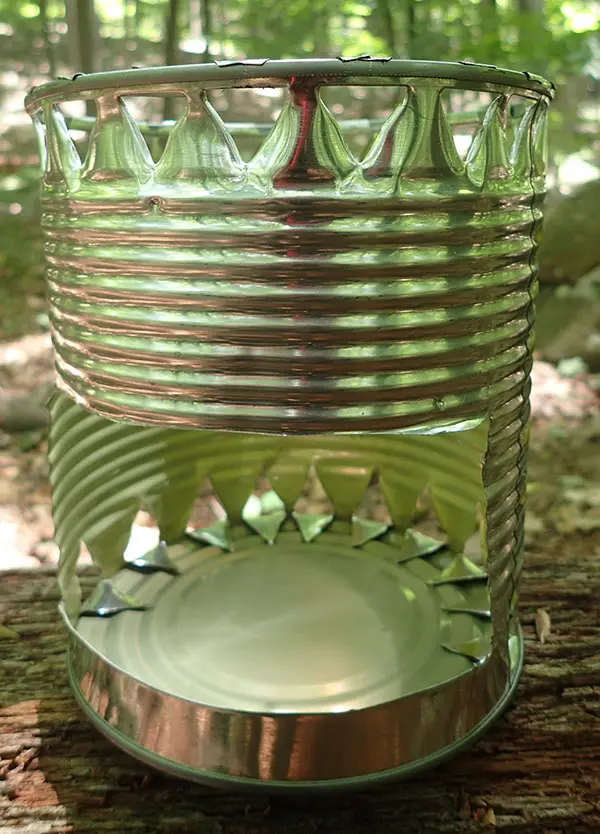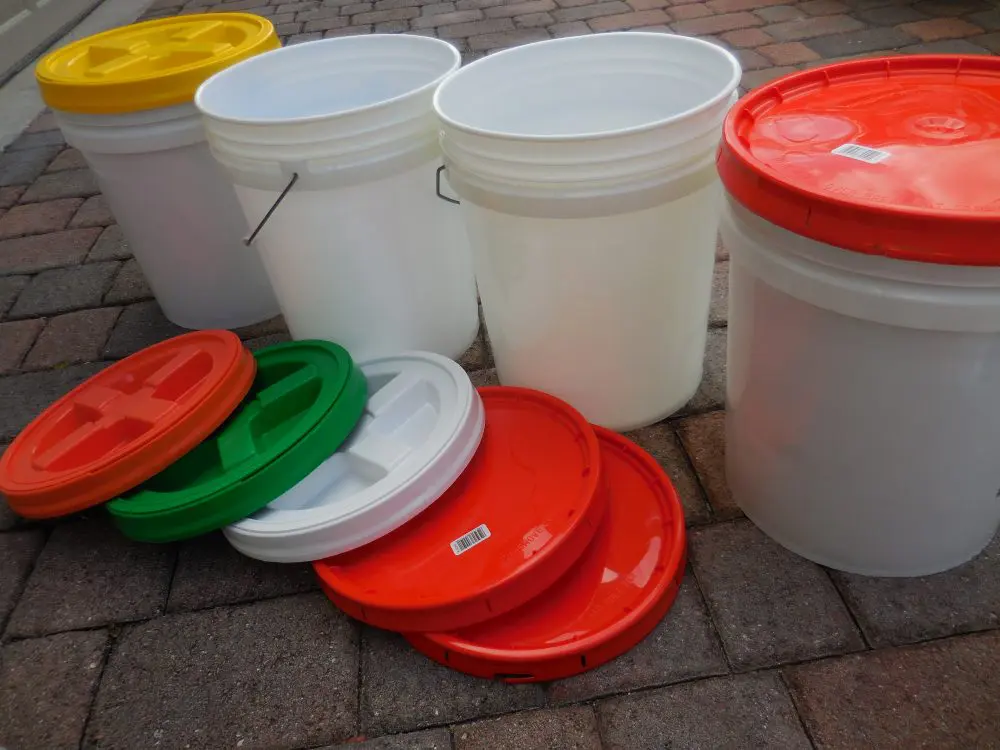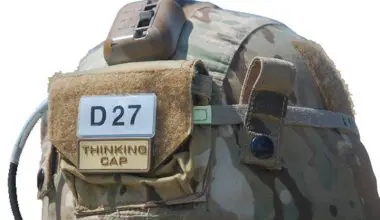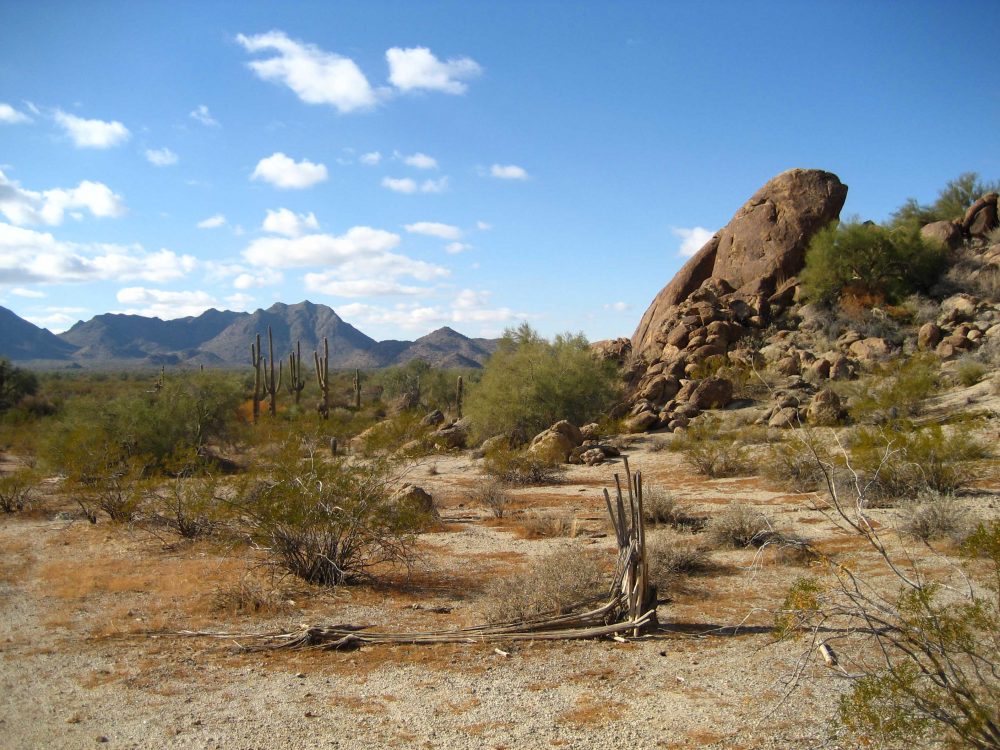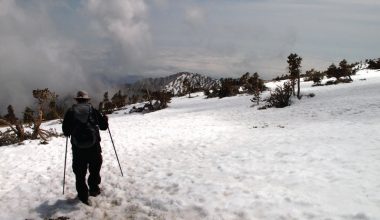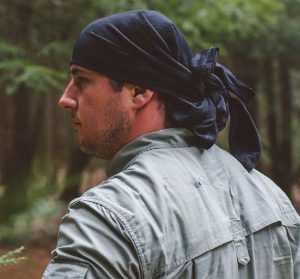
Merino wool comes from one of the world’s most ancient breeds of sheep, as well as one of the toughest. Merino sheep usually live in extreme weather. Domesticated in Australia and New Zealand, the Merino breed originated in Spain.
In summer, the thin Merino’s coat is light and breathable, keeping them cool at 95 degrees F. In winter, they grow an extra layer of wool over their regular base coat. This adds extra protection at -4 degrees F.
Merino wool is popular for highend performance gear and athletic wear because it breathes in the summer and insulates in the winter, while staying lightweight and super soft. Merino wool is finely “crimped” and soft, even directly up against the skin. This crimped fiber construction is also a factor when it comes to strength and durability, much like the natural coat of the mighty sheep.
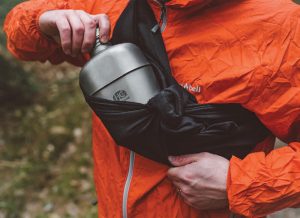
haversack or belt to store items. Photo: Kevin Plymette
Said to have the best warmth-toweight ratio, Merino wool has small fibers that create microscopic cortices of dead air space, trapping body heat. Like cotton, wool absorbs water—up to 1/3 its weight—but unlike cotton, wool retains warmth when wet. This warmth retention helps combat one of the stealthy killers of winter, hypothermia. This could be from sweating after exertion or if the skies open up with a downpour.
Merino wool is known for its superior insulation, but not many people understand that it works both ways. To keep heat off your skin, dark-colored, loose-fitting garments are the way to go. The Bedouin tribes in the Middle East and Northern Africa use black robes and head coverings, which block out more UV rays than white garments.
Lanolin is a natural oil that is emitted from the sheep’s skin. It serves as their natural DWR (durable water repellant) and helps prevent skin

infection. Much of the lanolin is washed off during the wool processing, but just enough remains to help cut down on odor. This makes Merino wool ideal for adventure wear.
MERINO WOOL KERCHIEF
North x North (North by North) is a new company with two Australian Merino wool products on the market: a kerchief and a neck gaiter. NxN’s website has a video showing a variety of ways to wear and use the wool kerchief in survival, camping and medical emergency situations. NxN calls it the wearable multi-tool.
Survival experts have often noted the importance of keeping a bandana for the many uses it provides. They usually recommend cotton, with a size of 3×3 feet to cover as many bases as possible. Cotton can be charred in a metal container and used for tinder. It’s absorbent, so it makes a great towel. Cotton bandanas are usually very thin and dry fast.
I’d say the most popular reasons cotton bandanas have been carried for so many years are that they are readily available, inexpensive, and in some places the only option. Now North x North has come out with their wool kerchief, which at approximately 3.5×3.5 feet is larger than a standard cotton bandana.
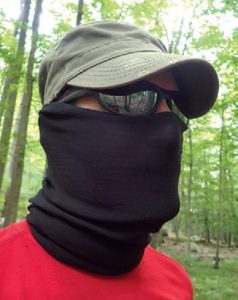
I took the NxN Merino wool kerchief on a summer backpacking trip to act as my bandana, head cover, and light blanket. Temperatures were not supposed to be very low, but it rained heavily. I rarely take a blanket or sleep covering in the Northeast during the summer. I did use a bivy, which was perfect for sleeping in to block some sprayed rain and to trap body heat, but at about four AM, the chill set in.
The wool kerchief was just large enough to fend off the cold. I couldn’t believe how much warmth the Merino wool offered for such a light, thin garment. I am eager to see how it fares in the colder months.
When a bag or extra stuff sack is lacking in camp, the wool kerchief can be used to hang food in, high above the ground to keep little critters away from it. By putting food in the middle and tying the four corners together, it forms a good-sized sack.
More camp uses for the wool kerchief include making a haversack out of the generous-sized material for day hikes or exploring around a camp area. It can easily fit a water bottle, food, and some “must-take” items.
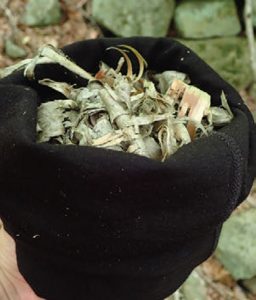
With the wool kerchief wrapped around your hand as an oven mitt, handling hot pots and pans is safer. The wool kerchief is long enough for field-expedient lashing of a ridgepole for shelter, a tripod or to attach gear to a pack. It can even act as a belt or sash that can be used to stash items.
The NxN wool kerchief can be worn like a shemagh (a length of material wrapped around a person’s head and tied to protect against sun, wind and sand), which is part of an ancient Middle Eastern headgear tradition. The kerchief is cut like a square, making this type of wrap possible, but with the added benefits of Merino wool.
In a much simpler approach, the wool kerchief can just be draped over your head and held in place. It doubles as a scarf to not only keep the neck and chest area covered, but the face too.
In the first aid department, the wool kerchief can be used to slow bleeding, much like a bandage. It can become a field-expedient sling for an injured limb. Ice can be wrapped in the wool kerchief to make a compress. It can be soaked in water and cover a person who is experiencing heat-related injuries
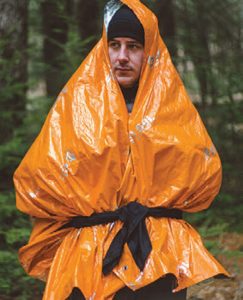
like hyperthermia and heatstroke.
NECK GAITER
In addition to the wool kerchief, North x North offers a neck gaiter. It measures 9×21 inches (tube style) and can cover both the neck and face up to the bridge of the nose. It works well when worn loose, bunched around the neck to block the sun. Because it’s Merino wool, it does amazingly well in cold weather.
While I was camped out, I used the neck gaiter to collect pieces of birch bark for tinder. I tied one end off and used it as a collection sack. Later that night, I stuffed the tube with articles of clothing and it became my pillow. I am looking forward to discovering more ways to use the neck gaiter over the coming months.
Now there is an alternative to the cotton bandana that offers more warmth, insulation, and versatility than cotton ever could. The many uses of the wool kerchief and neck gaiter are just too good to do without!
